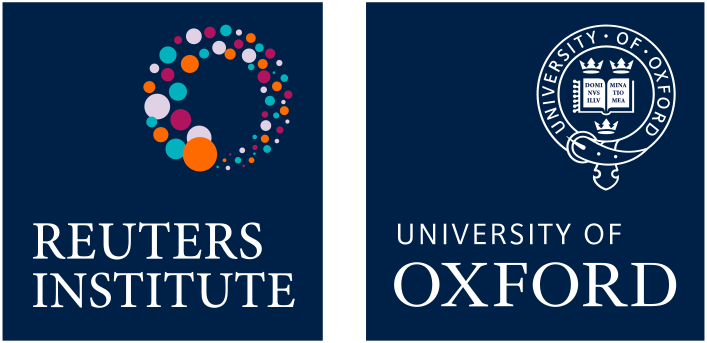
Singapore
Singapore’s tight media regulations extend beyond traditional outlets into digital and social media. In the run-up to an election, this has further extended to target deepfakes. While mainstream outlets continue to enjoy high levels of public trust, many are quietly undergoing transformation amid shifting audience behaviour and resource pressures.
Months before the May 2025 election, the city-state’s parliament introduced a law to ban the publication, sharing, or reposting of deepfakes and digitally manipulated content of candidates. This adds to the intricate system of laws against online falsehoods, including the Protection from Online Falsehoods and Manipulation Act (POFMA) and the Foreign Interference (Countermeasures) Act. It also comes as more Singaporeans turn to image and video-based platforms like YouTube (+4pp), Instagram (+4pp), and TikTok (+3pp) for news.
POFMA gives ministers the right to order the publication of ‘corrections’ to online content that they consider to be erroneous, or to prevent a ‘diminution of public confidence’ in the government. In November 2024, correction notices were issued to Meta and X after an activist, Kokila Annamalai, claimed executions were carried out arbitrarily and without regard for due process. The state rejected these claims, publishing its reasons on its fact-checking website Factually, and ordered corrections to be made. Though Meta and X complied with the orders, Annamalai refused to do so and may face jail as a result.
In another case, Bloomberg, The Edge, The Independent, and alternative news site The Online Citizen were issued correction directions for a Bloomberg article headlined ‘Singapore Mansion Deals are Increasingly Shrouded in Secrecy’ that involved two ministers. The Edge issued an apology1 while Bloomberg stated in its correction notice that it complied only under the threat of sanctions, saying it ‘reserves its right to appeal and challenge the correction direction’, adding that it stood by its reporting. The ministers concerned later filed defamation suits against Bloomberg and its reporter.
Singapore’s new deepfake law bans the online publication of content during an election period that ‘realistically’ depicts a candidate saying or doing something that they did not do, including content made by AI and by techniques such as dubbing and splicing. It applies to favourable and unfavourable content, but does not include animated characters, beauty filters, or entertainment-like memes. Failure to abide by take-down orders could land social networks up to $1m in fines.
Channel News Asia (47%) is the most used online news source in Singapore. CNA is part of the state-owned Mediacorp, which operates most television and radio stations in Singapore. Its portfolio includes 24-hour news network CNA (used weekly by 33%), English-based Channel 5 (23%), and Mandarin-based Channel 8 (23%).
Marking its 25th anniversary in March 2024, CNA expanded its offerings to the United States, Canada and the United Kingdom.2 This expansion positions it as an international news channel presenting news from an Asian perspective. Back home, though, Mediacorp closed TODAY, a digital newspaper which was launched in 2000 and quickly became the second most read in Singapore. In 2017, it had gone fully digital and ceased its print edition but still won praise for its reporting and video production. The company said this was a strategic move to consolidate resources and cater to evolving media consumption habits. Its staff have been taken into the CNA digital newsroom and will now produce long-form digital content for the site at weekends.
Meanwhile CNA has been investing in semi-automated production processes including AI-generated summaries of news stories – known as FASTs – to appeal to a mobile and social audience. The Infocomm Media Development Authority (IMDA) also released an updated skills framework for media industry professionals, urging practitioners to learn about generative AI and virtual production technologies. In our survey, 7% of our respondents say they have used AI chatbots for news.
Digital-native Mothership is the second most used news site (46%), followed by the website of the English-language Straits Times, the newspaper of record in Singapore operated by state-supported non-profit SPH Media Trust (SMT). It also publishes Lianhe Zaobao in Mandarin (8%), Malay-language Berita Harian (4%), and Tamil-language Tamil Murasu (1%). The fourth most-used news site, Yahoo! News (used by 21%), laid off all its editorial and social media staff and moved towards exclusively syndicating content from other outlets. Audiences who say they use YouTube, Instagram, and TikTok for news all grew slightly, while the percentage who use WhatsApp and Facebook for news remain stable.
Matthew Chew and Edson Tandoc Jr.
Wee Kim Wee School of Communication and Information, Nanyang Technological University, Singapore
Changing media
Online and social media remain the most common ways of accessing news in Singapore, while both TV and print have declined significantly over the last few years. Most survey participants do not pay for news.
Pay for online news
16%
Trust in news overall
45%
(-2)
=15/48
Trust in the news remained stable (45%), with the Straits Times (75%), Channel NewsAsia (74%), and Mediacorp’s Channel 5 (73%) being amongst the most trusted news sources by audiences. Most legacy news brands have retained or improved their brand trust scores this year, while alternative and independent outlets still rank lower, partly due to their limited track record and emphasis on viral news.

